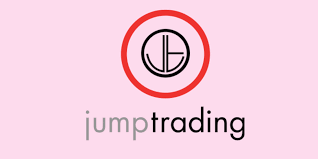ShapShift, an established exchange, announced the implementation of “zero fee”, which refers to hosted exchanges such as Coinbase.
The cryptocurrency exchange, ShapeShift, announced on Wednesday that it is rolling out zero commissions, hoping it will take the lead in hosting escrow like Coinbase and Kraken.

Erik Voorhees, CEO and founder of ShapeShift, said:
"The reason why cryptocurrency is important, one of its willingness is that it allows people to control their assets. But unfortunately, most people trust these assets to third-party exchanges."
- Algorand 2.0 released, providing standardized asset creation, atomic transfer and smart contracts in Layer 1.
- What is the experience of buying coins, buying a house, and buying shares?
- Hong Kong stocks Accor Holdings plunged 98%, and the stock market's "sickle" is sometimes sharper than the currency market
ShapeShift is one of the first encrypted trading platforms to build an unmanaged model in 2014, which means that all its users have their own funds and private keys, while hosted exchanges such as Coinbase and Binance store users' funds and keys and sensitive individuals. information.
Voorhees said:
“We hope that by eliminating the fees, we will encourage people to switch to the unmanaged model.”
It is not new to adopt a zero fee model for cryptocurrency exchanges. In fact, as early as the development of the cryptocurrency industry, in order to attract users, large-scale exchanges have implemented zero commissions, such as the early three major exchanges in China, OKCoin, Fire coins and Bitcoin China. Until the beginning of 2017, with the supervision of national regulators on domestic exchanges, the three major exchanges stopped “financing” and “melting” services. On January 22 of the same year, the three major exchanges simultaneously issued an announcement to announce the collection of transaction fees .
Will zero handling hurt ShapeShift's business?
All users of the ShapeShift platform will now automatically receive 100 FOX tokens (the loyalty tokens available to ShapeShift members) and will continue to be free of charge transactions as long as they hold the token. Depending on the amount of tokens the customer has, they can make a certain amount of free trade every 30 days. Voorhees explained that the main difference between FOX tokens and other exchange tokens (such as BNB, etc.) is that at ShapeShift, customers do not deduct the FOX token they hold when they benefit.
ShapeShift's move echoes the price integration movement that has swept the US brokers. Vanguard has approved free exchange-traded fund (ETF) transactions for some time, and Fidelity is also offering zero commission index funds and ETFs. Last month, some big-name brokers, including Charles Schwab and TD Ameritrade, also announced that they would get rid of commissions for online stocks and ETF trading.
Voorhees said that ShapeShift does not believe that lowering fees will hurt their income. In addition to the fees charged by users who do not hold FOX tokens, ShapeShift also plans to sell its tokens to new customers after this model is successful in exchange for permanent free transaction services.
He expects trading accounts to surge by 30% due to this move.
Will cryptocurrencies go to an unmanaged future?
Unmanaged exchanges offer a higher degree of transaction anonymity and security. It does not require a trading account and is a convenient option for people who want to make a quick deal or are unwilling to delegate personal information to the exchange.
Voorhees said:
“So far, unmanaged exchanges have low liquidity or poor pricing, or both.”
ShapeShift aims to solve both problems by providing high liquidity and zero transaction fees.
He added: "I believe that in the long run, self-hosting is the development direction of the cryptocurrency industry."
But ShapeShift has no plans to transition to a fully decentralized platform, the open source, unlicensed on-chain platform, on which users can use the smart contracts on the Ethereum network to trade tokens. According to Voorhees, ShapeShift is reluctant to position itself as a “transaction-agnostic” platform and does not want to constrain itself to a network that is almost exclusively used to trade Ethereum tokens.
He said:
“Our target audience is ordinary encrypted users who can own several assets and want to hold and trade these assets in a secure manner.”
We will continue to update Blocking; if you have any questions or suggestions, please contact us!
Was this article helpful?
93 out of 132 found this helpful
Related articles
- An overview of encryption insurance: a huge business with an emerging valuation of billions of dollars
- How to judge the degree of decentralization of a blockchain project?
- Jia Nan Technology Zhang Nan’s two or three things
- BTC continues to be weak and volatile, the mainstream currency market is worthy of attention
- Analysis: Subversion of Moore's Law, the mystery behind the skyrocketing power of Bitcoin
- Babbitt column | See the application of blockchain in medical and health fields from drug anti-counterfeiting and medical insurance claims
- Jingdong released a blockchain technology and application panorama, first disclosed the 2020 strategy






